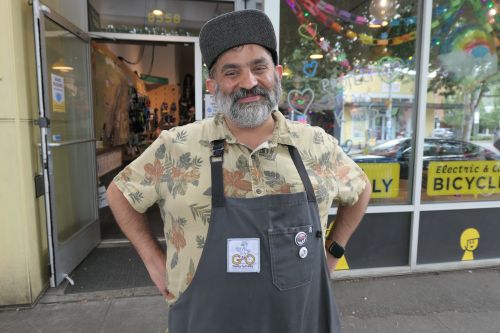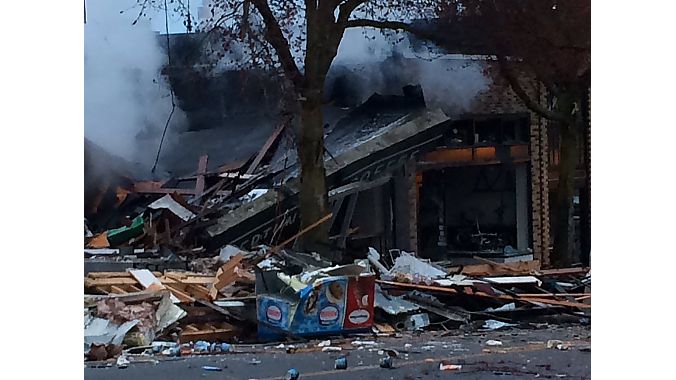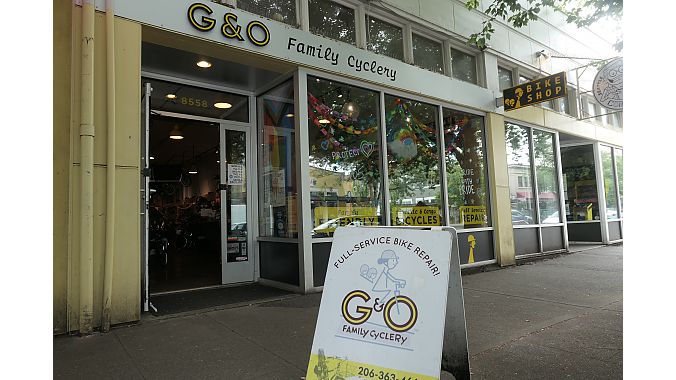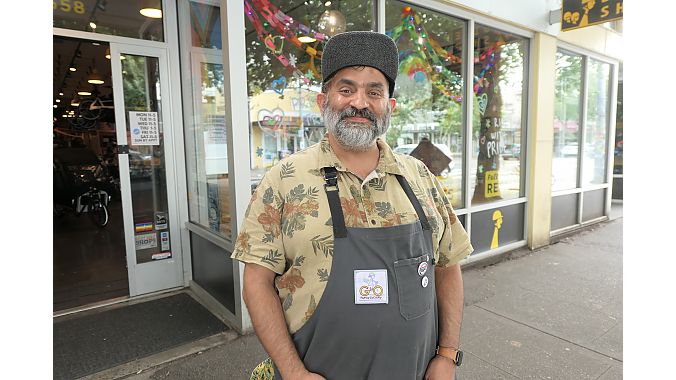By Paul Tolme
SEATTLE (BRAIN) — The phone call came at 2 a.m. on March 9, 2016. Davey Oil rushed to G&O Family Cyclery to find the Seattle cargo and transportation bike shop he’d opened three years earlier demolished by an explosion that reduced half a city block to rubble.
“I stayed there all night and most of the next day. My employees all showed up too, and everyone was like, ‘Of course we will rebuild.’” An investigation found the local gas company at fault.
The legal battle to recoup G&O’s financial losses dragged on for years, but within a year the shop was open down the street thanks to an outpouring of emotional and financial support. People wrote checks, held fund-raisers, and a child donated a bag of coins to the rebuilding effort. Lance Armstrong even tweeted his best wishes.
“I still have letters written in crayon from children,” Oil says. “People put us up on their shoulders. It was beautiful. I felt very Jimmy Stewart in ‘It’s a Wonderful Life.’”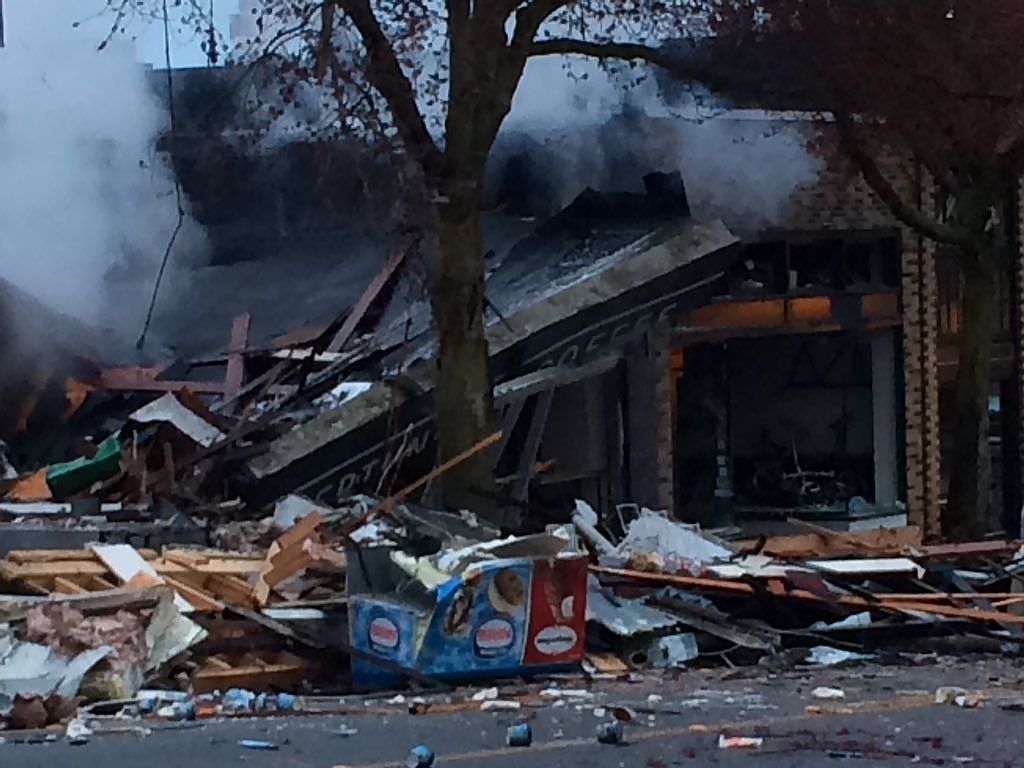
It’s difficult to imagine such an outpouring of affection for your typical bike shop, but G&O is not a normal shop, and Oil is not your typical shop owner. At a time when the industry is still learning the value and meaning of DEI, G&O shows that embracing diversity, equity, and inclusion are not just right but also profitable.
Visit Seattle today, and you will see moms and dads across the city pedaling Urban Arrows and Terns with their children as passengers. Seattle is experiencing a family e-cargo bike boom, and nobody is more responsible than Davey Oil.
One decade after opening, G&O is one of the most positive and influential shops in North American transportation cycling. Oil is a big-hearted individual, unafraid to speak truth to power.
“Davey is unapologetically Davey,” says Chris Nolte, founder of Propel Electric Bikes, which has stores in New York, Delaware and California. “He is very free with information, he’s authentic, and he’s not afraid to speak up for what’s right.”
Oil on the Roadways
Born David Pasquale Giugliano, an Italian American from Long Island, Davey was once a comic book illustrator and author. He took on his Oily moniker as a nom de plume. Now 44 and with children aged 13 and 10, Oil grew up riding bikes to school and to visit friends.
As a teen he chose to never learn how to drive a car. He doesn’t consider himself a bicyclist and dislikes the word because it’s an othering term and dog whistle for those who think roads are for cars only. Oil rides for transportation, and he doesn’t fetishize bikes. Bikes are machines for transporting him from A to B with efficiency and fun.
In 2005, Oil helped found the Bikery, a nonprofit collective that provides a space for people to work on their bikes while acquiring the skills to teach others. The Bikery had social justice baked into its DNA, opposing racism, sexism, homophobia, transphobia, and other forms of oppression.
After a stint as an ambassador for the Cascade Bicycle Club, Oil took a job as an educator at the nonprofit Bike Works.
While pedaling to work, Oil was pulled over by a Seattle police officer and ticketed for the fictional crime of Riding on Roadways.
“I was egotistical enough,” Oil says, “to tell the cop that this was not a crime.”
He went to court certain he would beat the charge. The judge, however, sided with the police. “That was extremely disheartening,” he says.
Oil started the Riding on Roadways blog in the early 2010s. It was a forum for the bike movement and the rise of DIY cargo bikes. “I knew some radical moms who were living car-free in Portland and Seattle and San Francisco, and who were trying to spread the word about box bikes and Xtracyle and cargo bikes and kid haulers. People had to find DIY methods and hacks to make cargo bikes at that time. The blog became a resource for writing about these folks and the bike movement.”
A Decade of Oil
Oil started G&O, of all reasons, to make more money. His spouse was about to give birth to their first daughter, and bicycle advocacy and blogging wouldn’t support a family. He and co-founder Tyler Gillies, who left G&O in 2019, opened G&O in September of 2013. A decade later, G&O has proven that there is a profitable market for cargo bikes and practical family transportation bikes.
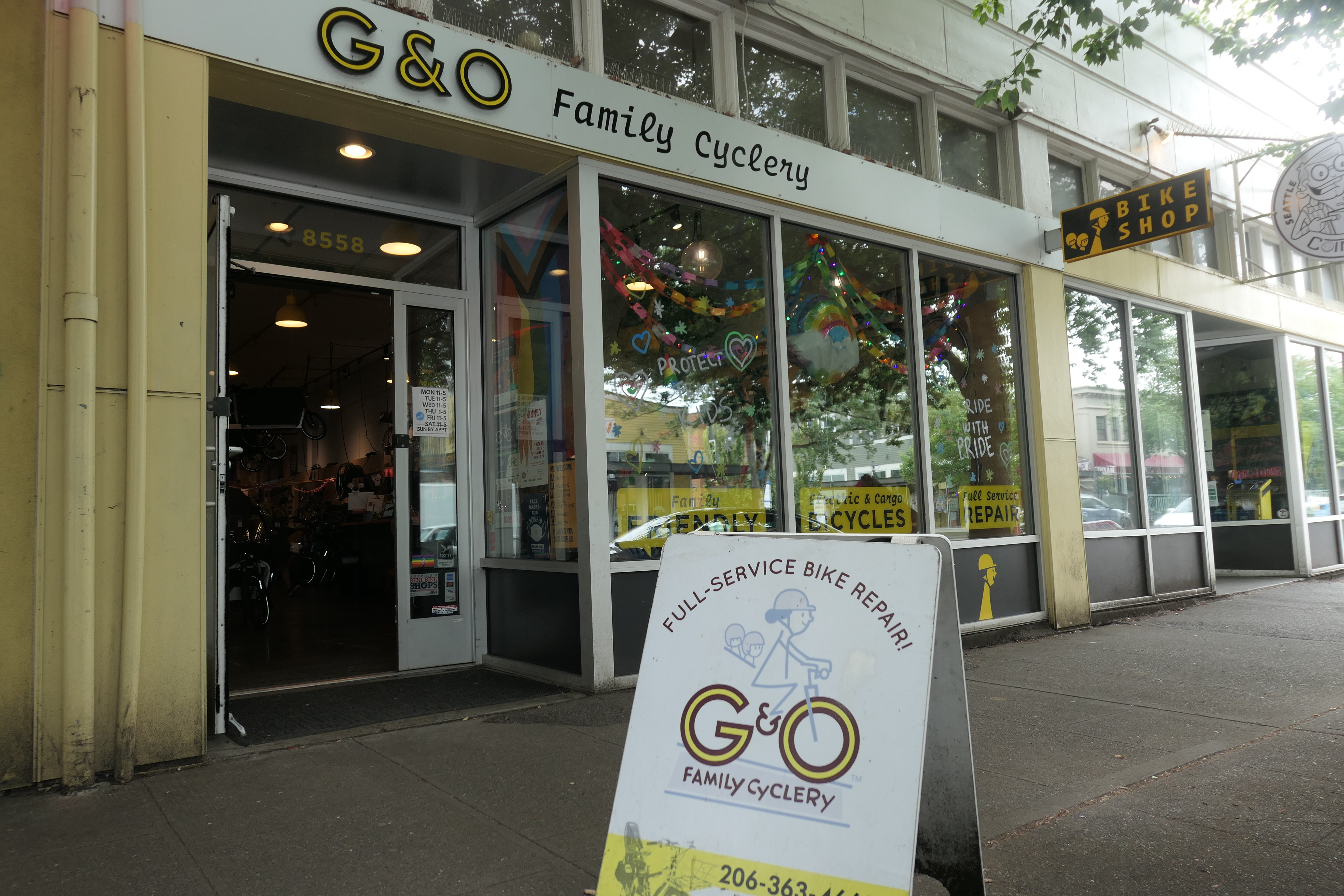 Oil took lessons from pioneering cargo bike shop Splendid Cycles in Portland.
Oil took lessons from pioneering cargo bike shop Splendid Cycles in Portland.
“The idea was to minimize risk and keep it slim by being small scale and just-in-time. We didn’t need a huge inventory because every bike was going to be customized. We needed to find brands that were happy selling bikes in twos and threes.”
They hoped to sell 12 to 20 bikes in their first year but surpassed that in the first several months. Their first models included the Bullitt, the Xtracycle Edgerunner, and Brompton. Bionix was the leading electric bike motor at the time, and “we added Bionix hubs to about a third of the Xtracycle and Bullitt and Yuba cargo bikes we sold in those early years.”
Then Bionix went bankrupt, which taught Oil the need to work with brands in business for the long term. G&O now carries Urban Arrow, Tern, Riese & Muller, Gazelle, and for kids, Cleary and Frog.
Oil considers G&O an outfitter more than a traditional bike shop. “We turn the conventional model of sales-as-loss-leader-for service upside down.”
Oil on the bike industry
Oil hopes that G&O can model a profitable shop that values workers.
“The stupidity and shortsightedness of this industry means there is no expectation of a high degree of profitability for bike mechanics, no expectation of professionalism or a lifetime career holding tools.”
Oil supports federal regulation of e-bike components and safety. “For many of the brands selling electric bikes direct to consumers there is no expectation or plan for the requirement that consumers are going to receive ongoing support. We need stores. Bikes need to be fixed by experienced mechanics, and those mechanics need to be compensated fairly.”
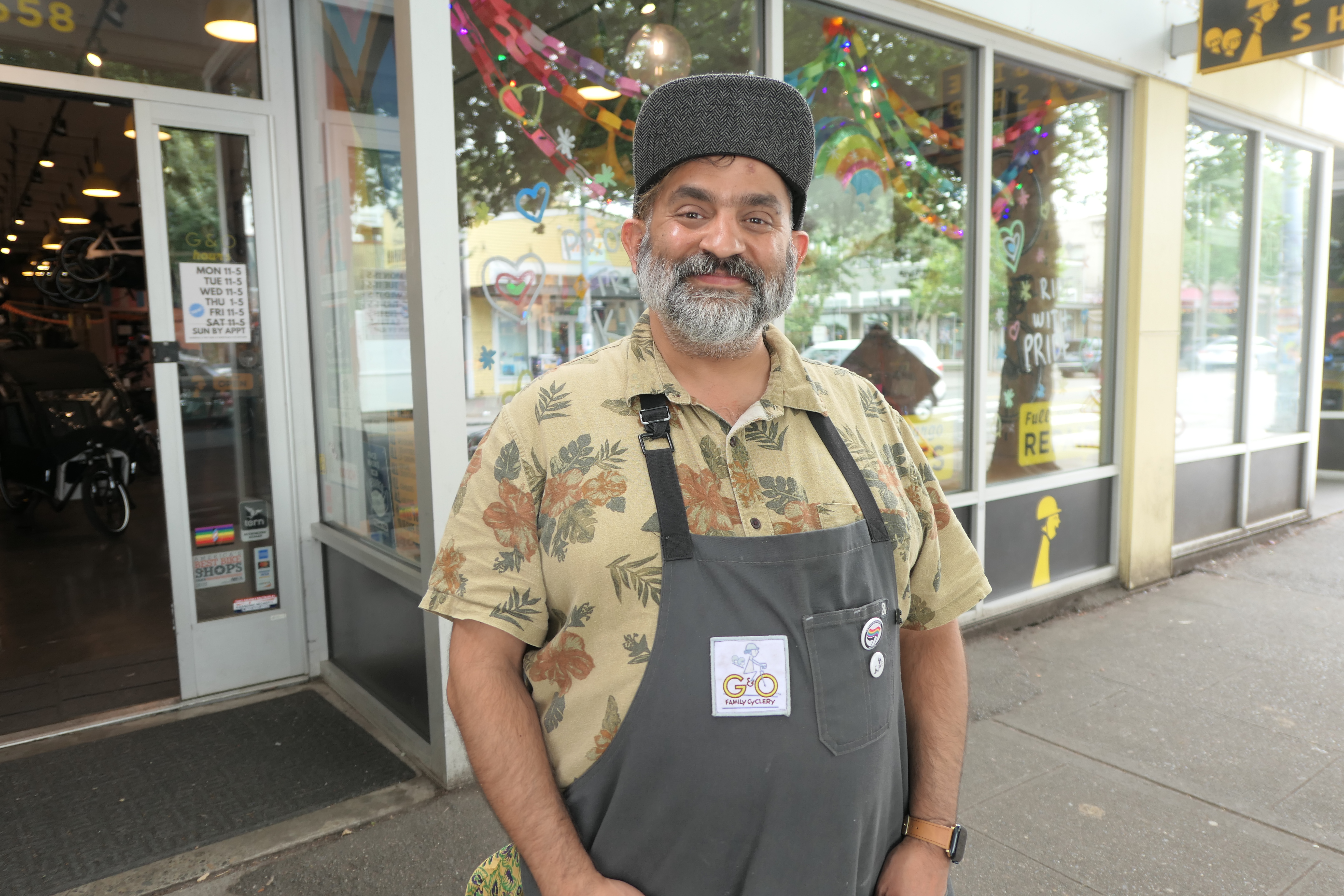 Oil calls the traditional low wages and high turnover of bike shops toxic. “Most of our employees have been here for years. They know that their job is not just to fix bikes but to keep moms and babies safe. Our main goal is to bring people in who have been excluded.”
Oil calls the traditional low wages and high turnover of bike shops toxic. “Most of our employees have been here for years. They know that their job is not just to fix bikes but to keep moms and babies safe. Our main goal is to bring people in who have been excluded.”
“Most shops,” Oil says, “have no strategy for training. We have layered safety checks and quality control checklists, and our mechanics are good listeners. It’s slow cooking.”
Eighty percent of G&O employees are transgender and nonbinary, says Oil, who identifies as queer.
G&O has seven full-time and two part-time employees, all in a cramped footprint.
“We have the highest retention rate of any bike shop that I know of. People ask, ‘Yeah but what have you compromised? … What have we compromised? Sexism. Homophobia.”
G&O is helping to refine transportation products. “We participate with brands in product development,” Oil says. “We punch above our weight class. The reason is because we have a bunch of weirdos who care more than anyone else about our riders. Bikes are great. But it’s about families.”
Oil declined to specify G&O’s sales numbers. “Our business is growing. We have a good problem in that we’ve got more work than we can handle. We want more competition.”
“Davey showed that you can be a successful shop by being nice, by being inclusive, by stocking only transportation brands, and by catering to families,” says Arleigh Greenwald (AKA "Bike Shop Girl"), marketing and social media manager of Tern Bicycles.
When Greenwald decided to open a bike shop, prior to joining Tern in 2021, she asked Oil if it was OK to name it Bike Shop Girl Family Cyclery.
Greenwald’s shop, since sold, is among the multiple Family Cycleries that have opened, including Hardt Family Cyclery in Aurora, Colorado, and Four Star Family Cyclery in Chicago. Says Oil: “I love this city. This is our community. We want to help improve it.”

